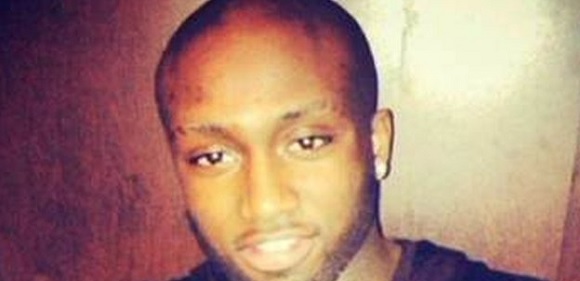Documents released under the Freedom of Information Act reveal that the IPCC consulted with a police force under its investigation during the construction of its media releases.
On 6 May 2013, Julian Cole, a 21-year-old black man, was left with a broken neck after being detained and arrested by Bedfordshire police outside a nightclub. Cole’s injuries, consistent with pressure being applied to his neck while his head was pulled back, have left him permanently brain damaged.
Since that night, his family have sought answers from the police and the Independent Police Complaints Commission (IPCC), forming the Cole Family Truth Campaign. As with the family of Sheku Bayoh, who died in police custody in Scotland in May 2015, Cole’s family was fed misleading information by officers in the hours following his hospitalisation: Cole had been ‘chatty’ in the back of the police van, and he had been drunk. CCTV footage later emerged of Cole being carried unconscious into the van, while a toxicology report found that, while he had consumed alcohol, he was under the legal drink-drive limit.
Last year, Cole’s case garnered press attention, which provoked statements from the now-retired Chief Constable of Bedfordshire police, Collette Paul, who criticised the news coverage on the grounds that ‘we cannot make any assumptions about where the blame lies.’ Yet documents released last week under the Freedom of Information Act reveal that Bedfordshire police did just that – at the invitation of the IPCC.
On 7 May, the day after Cole sustained his injuries, the IPCC declared it was investigating the actions of the door staff and police officers involved in Cole’s hospitalisation. By 17 May, six officers had been served with notices informing them that their actions were subject to criminal investigation, and on 22 May they were interviewed under caution. However, while an ‘independent investigation’ was said to be under way, the IPCC saw fit to consult with Bedfordshire police for input in the construction of a media statement. On 5 June 2013, the IPCC sent a draft of a press release appealing for witnesses to Bedfordshire police’s Media Relations Manager. They were, in turn, asked to forward it to the Professional Standards Department for their comments and revisions. Assistant Chief Constable Nigel Trippett, now retired, then asked for the release to be re-worded.
Bedfordshire police advised the IPCC that they ‘would rather the release was more balanced overall’. The IPCC’s original copy stated that ‘The 19 year old man who was arrested and restrained remains in a serious condition in hospital’. But police objected to this on the basis that it ‘suggest[ed] the injury was caused following the his arrest [sic]’. Despite the fact that the sequence of events leading to Cole’s hospitalisation was subject to an independent investigation, Bedfordshire police suggested a rewrite that would have created doubt over officers’ wrongdoing: ‘it should read “restrained by others and then arrested by police”.’ While the IPCC did not reword its press release along police suggestions, it did omit all reference to the fact that Cole had been restrained and arrested.
Police also objected to a quotation from IPCC Commissioner Mary Cunneen, who had appealed for witnesses so as to ‘get to the truth of what happened’. According to Bedfordshire police, the statement suggested ‘impropriety on the officers part or that they are trying to hide the truth which they are clearly not’. Again, the IPCC removed the contested section from its press release.
The exchange of emails raises serious questions about the independence of the IPCC as an investigative body. It appears to have seen no conflict of interest in collaborating with a police force under its investigation over the provision of information to the media. Cole’s family has already voiced concern over the length of time it has taken for the IPCC to produce a final report on its investigation, which has yet to be released despite initial assurances of a July 2014 deadline.
This is not the first time that the IPCC has changed its press releases at the request of the police, rather than conducting an independent investigation. The news follows the revelation that, in the hours following the police shooting of Mark Duggan, the IPCC withheld vital information about a supposed ‘exchange of fire’ at the behest of the Metropolitan Police’s Acting Deputy Commissioner, Bernard Hogan-Howe. At least one member of staff posed the question: ‘where was our independence’?
Related links
Read an IRR News story: ‘Where was our independence?’ The persistent questions about the IPCC’s Mark Duggan investigation
Read an IRR News story: Spinning the death of Sheku Bayoh


Let us all say a very much needed prayer for Julian’s recovery.
Steven.